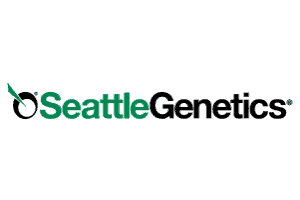
Seattle Genetics has asked a court to dismiss a lawsuit brought a few weeks ago by Japan’s Daiichi Sankyo centring on intellectual property related to antibody-drug conjugate (ADC) drugs.
In an emailed statement, a spokesperson for Seattle Genetics said the biotech is arguing that the lawsuit is improper, and that Daiichi Sankyo “cannot proceed with its complaint…except in arbitration, as required in the parties’ 2008 collaboration agreement”.
Daiichi Sankyo sued Seattle Genetics a few weeks ago, saying that the US biotech was claiming IP rights to a number of ADCs in its pipeline, including DS-8201 (trastuzumab deruxtecan), a HER2-targeting drug for breast cancer that was licensed by AstraZeneca for $1.35bn upfront earlier this year.
The two companies previously collaborated on ADC drug development between 2008 and 2015, and it was reported at the time that Daiichi Sankyo paid $4m upfront in the deal.
This was said to revolve around a linker technology used to connect the targeting antibody and cell-killing payload in the ADC molecule.
Seattle Genetics argues that the inker and other ADC technology used in DS-8201 and other drugs in Daiichi Sankyo’s pipeline are “improvements” on its own platform but remain under the terms of the two companies’ 2008 agreement.
Shortly after Daiichi Sankyo filed its lawsuit, Seattle Genetics submitted an arbitration demand to the American Arbitration Association (AAA), saying it had been abiding by the agreement’s dispute resolution provisions.
“We look forward to establishing in the correct forum that Seattle Genetics is entitled under the parties’ collaboration agreement to the intellectual property rights at issue,” said the spokesperson.
DS-8201 has been granted a priority review from the FDA, setting up a potential approval in the second quarter of 2022 in patients who have failed treatment with Roche’s anti-HER2 ADC Kadcyla (trastuzumab emtansine), its nearest rival.
The size of AZ’s investment in the drug has raise eyebrows, but DS-8201 has been tipped by analysts to become a $2bn product in 2024 if it moves further up the treatment pathway in breast cancer.
It could also have the potential to go even higher if Daiichi and AZ can expand its use into tumours that express lower levels of the HER2 biomarker than would ordinarily warrant HER2-targeted drugs.
ADCs feature prominently in Daiichi’s oncology pipeline, with additional candidates in early stage testing for breast cancer, non-small cell lung cancer (NSCLC) and other solid tumours, including anti-HER3 ADC U3-1402, TROP2-targeting DS-1062 and DS-7300, which targets B7-H3 and started a phase 1/2 trial last month.




